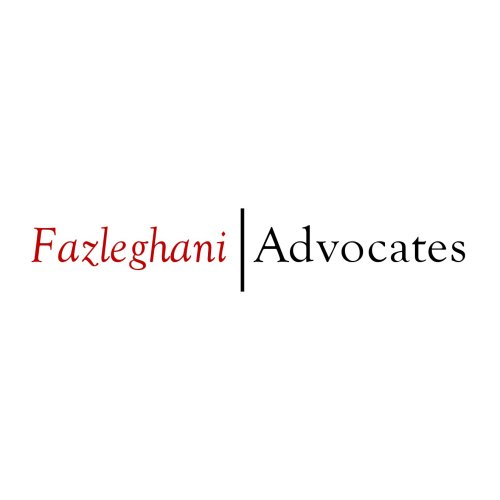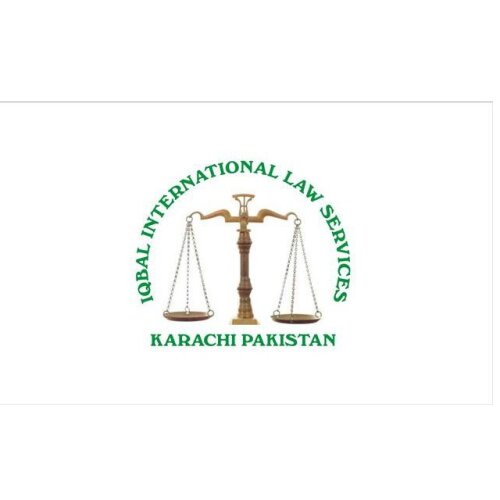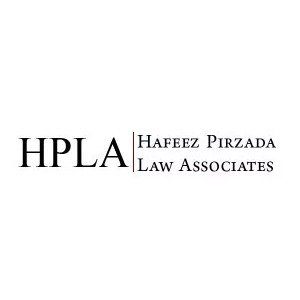Best Public-Private Partnerships (PPP) Lawyers in Karachi
Share your needs with us, get contacted by law firms.
Free. Takes 2 min.
List of the best lawyers in Karachi, Pakistan
About Public-Private Partnerships (PPP) Law in Karachi, Pakistan
Public-Private Partnerships, commonly known as PPP, are collaborative projects or ventures between government entities and private sector companies. In Karachi, Pakistan, PPP initiatives are often used for infrastructure development, such as transport, energy, healthcare, and education projects. The Government of Sindh has established a clear legal and regulatory framework to facilitate these partnerships, aiming to leverage private sector expertise, efficiency, and investment to deliver public services and infrastructure efficiently.
PPP arrangements enable the government to share risks and responsibilities with private partners, making large projects more feasible and often creating better outcomes for residents. In Karachi, PPPs are increasingly seen as an effective solution to tackle urban challenges and improve the quality of public services.
Why You May Need a Lawyer
Engaging in a Public-Private Partnership in Karachi can be a complex legal undertaking. Several scenarios may require legal expertise, including:
- Drafting and negotiating PPP contracts and agreements between public authorities and private companies.
- Interpretation of laws and regulations that govern PPPs in Karachi.
- Ensuring compliance with local and national PPP regulatory frameworks.
- Assisting with bidding and tendering processes to avoid disqualification.
- Resolving disputes or misunderstandings regarding risk allocation, payment structures, or delivery schedules.
- Protecting intellectual property rights or technology used in PPP projects.
- Advising on project financing, guarantees, and investment returns.
- Navigating land acquisition or environmental compliance requirements.
- Handling issues of corruption, transparency, or breaches of contract.
Due to these complexities, legal assistance is highly recommended before entering any PPP arrangement in Karachi.
Local Laws Overview
In Karachi, the legal framework for PPPs operates primarily under the Sindh Public-Private Partnership Act, 2010 and its subsequent amendments. Key aspects of local laws relevant to PPPs include:
- Sindh Public-Private Partnership Act, 2010: This Act provides the legal foundation for PPP projects in the province, setting out procedures for project selection, procurement, contract management, and project oversight.
- Sindh Public-Private Partnership Unit: This government body oversees the evaluation, approval, and regulation of PPP projects in Karachi and the broader Sindh province.
- Transparent Procurement: The law mandates transparent and competitive procurement processes to ensure fairness and value for money.
- Project Risk Management: Specific provisions address how risks are allocated between public and private partners, often requiring careful legal drafting.
- Environmental and Social Compliance: PPP projects must comply with environmental protection laws, social safeguards, and labor regulations.
- Dispute Resolution Mechanisms: The PPP laws outline procedures for handling disputes, often encouraging arbitration or mediation to resolve conflicts efficiently.
Understanding these local laws, and how they interact with federal legislation and sector-specific rules, is crucial for anyone considering a PPP in Karachi.
Frequently Asked Questions
What is a Public-Private Partnership (PPP)?
A PPP is a collaborative agreement where a government entity partners with a private sector company to finance, construct, operate, or maintain public infrastructure and services.
Who regulates PPPs in Karachi?
PPPs in Karachi are regulated by the Sindh Public-Private Partnership Unit, under the Sindh Public-Private Partnership Act, 2010.
Which sectors commonly use PPPs in Karachi?
Common sectors include transportation (roads, ports), energy, healthcare, education, urban development, and water supply.
How are PPP projects selected in Karachi?
Projects are selected based on public need, feasibility studies, value for money assessments, and potential for private participation, all under guidelines set by the Sindh PPP Act.
Can foreign investors participate in PPPs in Karachi?
Yes, foreign investors can participate, subject to compliance with local laws, investment regulations, and due diligence requirements.
What are the main steps in the PPP process?
Initial project identification, feasibility analysis, procurement through tendering, contract negotiation, financial close, construction or service delivery, and ongoing monitoring.
Are there legal protections for private investors in PPP arrangements?
Yes, the law ensures contractual protections, clear dispute resolution clauses, risk-sharing mechanisms, and guarantees against arbitrary changes.
What happens if there is a dispute in a PPP project?
Most PPP contracts provide for arbitration or mediation as primary dispute resolution methods, following the procedures outlined in the contract and relevant laws.
How can a lawyer assist with PPPs?
A lawyer can help with contract drafting, regulatory compliance, risk assessment, tender processes, dispute resolution, and protecting your commercial interests.
What are my responsibilities as a private partner in a PPP?
Responsibilities include fulfilling agreed project milestones, maintaining quality standards, complying with legal and environmental requirements, and ensuring transparent financial management.
Additional Resources
For more information, consult the following resources and organizations:
- Sindh Public-Private Partnership Unit (PPP Unit): Responsible for regulating and facilitating PPPs in Karachi and Sindh.
- Board of Investment (BOI) Pakistan: Provides guidance and support for local and foreign investors in PPP projects.
- Sindh Economic Zones Management Company (SEZMC): Assists with infrastructure development projects and public-private collaborations.
- Ministry of Planning, Development and Special Initiatives Pakistan: Issues policies and supports PPP initiatives nationwide.
- Local Bar Associations and Law Firms: Many legal practitioners in Karachi specialize in PPP law and can provide expert advice.
Next Steps
If you are considering participating in a Public-Private Partnership in Karachi, take the following steps:
- Conduct initial research on your sector and potential PPP opportunities.
- Review the relevant laws and guidelines provided by the Sindh PPP Unit.
- Consult with a qualified lawyer who specializes in PPPs to assess the legal implications and structure your project.
- Prepare all required documentation, including feasibility studies and investment plans.
- Engage with the relevant public authorities or PPP Unit to understand the procurement process and eligibility requirements.
- Ensure compliance with all regulatory, environmental, and social requirements before signing any agreements.
- Have your lawyer review all draft contracts, project agreements, and risk-sharing arrangements to safeguard your interests.
By following these steps and seeking professional legal guidance, you can navigate the complexities of PPP law in Karachi and increase the likelihood of a successful partnership.
Lawzana helps you find the best lawyers and law firms in Karachi through a curated and pre-screened list of qualified legal professionals. Our platform offers rankings and detailed profiles of attorneys and law firms, allowing you to compare based on practice areas, including Public-Private Partnerships (PPP), experience, and client feedback.
Each profile includes a description of the firm's areas of practice, client reviews, team members and partners, year of establishment, spoken languages, office locations, contact information, social media presence, and any published articles or resources. Most firms on our platform speak English and are experienced in both local and international legal matters.
Get a quote from top-rated law firms in Karachi, Pakistan — quickly, securely, and without unnecessary hassle.
Disclaimer:
The information provided on this page is for general informational purposes only and does not constitute legal advice. While we strive to ensure the accuracy and relevance of the content, legal information may change over time, and interpretations of the law can vary. You should always consult with a qualified legal professional for advice specific to your situation.
We disclaim all liability for actions taken or not taken based on the content of this page. If you believe any information is incorrect or outdated, please contact us, and we will review and update it where appropriate.

















